#henry avery
Text

uncharted 4: a thief's end (2016)
#uncharted 4#uncharted 4: a thief's end#uncharted#henry avery#uncharted 4 a thief's end#unchartededit#mads takes screenshots
22 notes
·
View notes
Photo
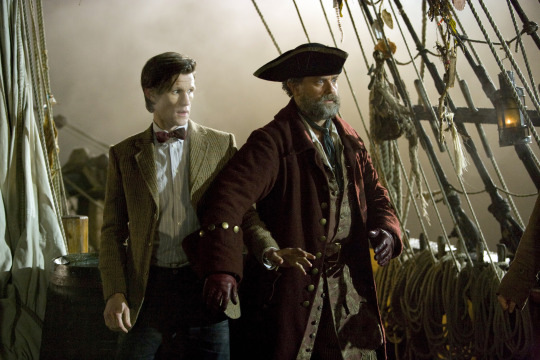
The Curse Of The Black Spot
23 notes
·
View notes
Text
My siblings and I all have gender neutral names (I love my mother) but we are all also named after big media characters (that part was all my bio dad. My older brothers’ names are Ripley (Pterodactyl from Metroid), Harper (Jim Harper/The Guardian, DC), Morgan (Morgan le Fey, Marvel), Spencer (Nathan Spencer, Bionic Commando), and Quinn (Harley Quinn, DC). My baby brother’s name is Avery (Henry Avery, Uncharted) my mom remarried but still kept up tradition. And my name?
It’s Parker.
I was named after Peter Parker.
I was named after fucking Spider-Man.
#I wanted to keep my birth name#so I just changed my middle name after I transitioned#it’s gwen btw#thought i’d keep up tradition too#my bio dad got a huge kick out of it when I told him#im ghost spider now bitches#Spider-Man#ghost spider#bionic commando#morgan le fay#peter parker#spider man#guardian#jim harper#harley quinn#Henry Avery#captain henry avery#uncharted#ripley#metroid#gender neutral names#fun story
18 notes
·
View notes
Text
Push Back To Pirates
The pirates caused a crisis for trading nations, particularly those dealing in Atlantic trade that travelled through the Caribbean as they risked losing their ships and goods to pirates. For example the Whydah, an expensive heavily armed slave ship, was captured by pirate Black Sam Bellamy on the return trip of its maiden voyage in early 1717 and this marked a turning point in Britain’s response to the pirates. The ship was owned by Humprey Morris, an MP and Governor of the Bank of England who wielded his influence to start a campaign against the pirates.
Parliament and the Navy were also threatened by how the pirates and their republic lived, a system where voting was common and anybody injured during piracy was compensated for their injuries depending on their severity. This demonstration that ships could be run democratically threatened the authorities of naval and merchant captains. Parliament had to make being a pirate more dangerous and less appealing to keep people looking for an alternative in line.
So the suppression of piracy started in earnest in 1717 with the English Parliament making Woodes Rogers the governor of the Bahamas who used his position to drive piracy out of Nassau.
This was followed in September 1717, the London Gazette published a royal proclamation from George I which demanded that the pirates surrender themselves under a “Gracious Pardon” and have the actions that they committed as pirates forgiven by the crown. The proclamation said that this pardon was to be extended for a year before any pirates who had not surrendered themselves would be caught and convicted for piracy.
Sources and Secondary Reading:
youtube
The Lost Pirate Kingdom (Netflix)
#Pirates#Nassau#benjamin hornigold#Henry Avery#Blackbeard#Edward Teach#Edward Thatch#George I#golden age of piracy#Nassau Pirate Republic#Educational#Student project#Historical#Youtube
3 notes
·
View notes
Text
The Notorious Pirate King Who Vanished With the Riches of a Mughal Treasure Ship
In the late 17th century, Henry Avery—the subject of the first global manhunt—bribed his way into the Bahamas
— Sean Kingsley and Rex Cowan | April 2, 2024
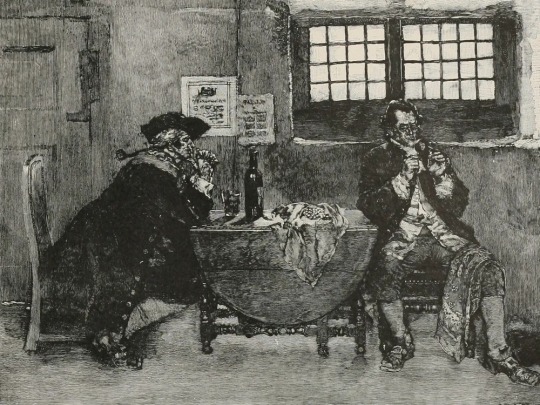
Some said the pirate king went to ground in London or Scotland, others that he died penniless and was buried in an unmarked grave in Devon. Or was he sipping fine French wine in the hills above Marseille? Public domain via Wikimedia Commons
Henry Avery stealthily steered past Hog Island. In the English-controlled waters of the Bahamas, his crew was under strict orders to call him Captain Henry Bridgeman. The Fancy’s gold, silver and diamonds, plundered off the coast of India from a Mughal emperor’s treasure ship, the Gunsway (or Ganj-i Sawa’i), were tucked away under false floorboards in Avery’s cabin.
Palm trees bowed toward the battered ship and the newly nicknamed pirate king. Sea oats shimmered in the early morning breeze. With blue skies and light winds, it was going to be a beautiful day. The final leg into Nassau’s calm harbor was tricky. It took a skillful old hand to squeeze through the narrow channel. On either side, shifting sandbars waited to chew up and spit out wayward traders, nationality be damned. One false move, and all the months of jeopardy would be for nothing.
It was April 1, 1696—a day to make fools of the smartest of men. Luckily, Avery knew all about the island of New Providence. He understood what made the darkest of souls tick and was skilled at turning any man to his way of thinking.
New Providence was the perfect place to make landfall. It straddled the ancient sea lanes between the Province of Carolina and Jamaica (both British colonies) and the Caribbean Sea to the south. Havana was just a three days’ hop away. From Nassau, would-be pirates could watch the panorama of New World trade gliding by.
At 28 miles long and 11 miles wide, New Providence, the heart of the islands of the Bahamas, was big enough to lay low. Best of all, it had a reputation for aiding and abetting villains. The pirate mantra “Ask me no questions and I’ll tell you no lies” could have been invented for this dodgy outback.
Avery knew the bad folk of New Providence were as rotten as a shipwrecked barrel of apples. In fact, he was banking on it. The Bahamas’ motley mob included experts in fishing wrecks sunk along the Florida coast, locals who rushed to salvage Spanish, British, Dutch and French valuables lost to hurricanes and storms. It was easy and generous work that beat breaking one’s back tilling the hateful earth.
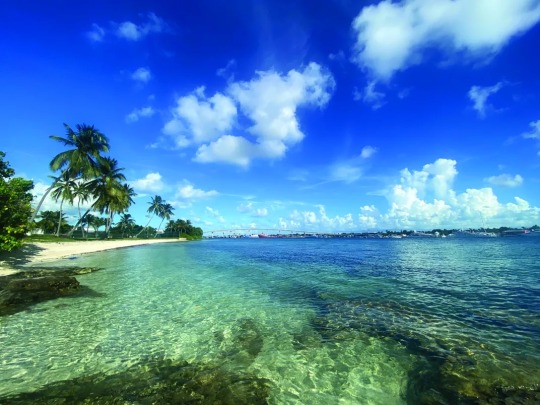
A view of New Providence today. Sean Kingsley
The New Providence of 1696 was a long way from becoming the world’s wickedest Republic of Pirates, its chaotic lanes home to such notorious figures as Benjamin Hornigold, Blackbeard, Calico Jack Rackham, Charles Vane, Mary Read and Anne Bonny. By the fall of 1717, as many as 800 pirates would rendezvous in New Providence to divide spoils, fence looted cargo and party away their ill-gotten gains. At times, the lair swelled to a thousand cutthroats, commanded by a changing “who’s who” of crazed leaders. Brawn and brains were respected, but strength always won control. All pirate captains understood that on these shores, the “strongest man carries the day.”
Avery had a knack for reading places and people like others read books. As an ex-Royal Navy sailor who became the skipper of the meanest pirate ship on the high seas, he needed to decide in a blink of an eye who he could trust and what gossip peddled in some mosquito-infested East African tavern was hogwash. His gut rarely let him down.
Peering through his eyepiece, Long Ben—as Avery’s crew called him on deck—made out a few dozen makeshift huts inland of the trees screening the coast. He spied what was little more than a shantytown on the make. Locals were gathering salt to hawk to passing cod-fishing traders from Newfoundland and New England, who used it to stop shipboard meat from rotting too quickly. The New Providence of 1700, with 160 houses and a church, was still a few years away. Up the slope, piles of masonry were being cut and plastered into foundation trenches to build the town’s desperately needed Fort Nassau, paid for by port customs’ profits. Equipped with 28 cannons, its gates would only open in February 1697.
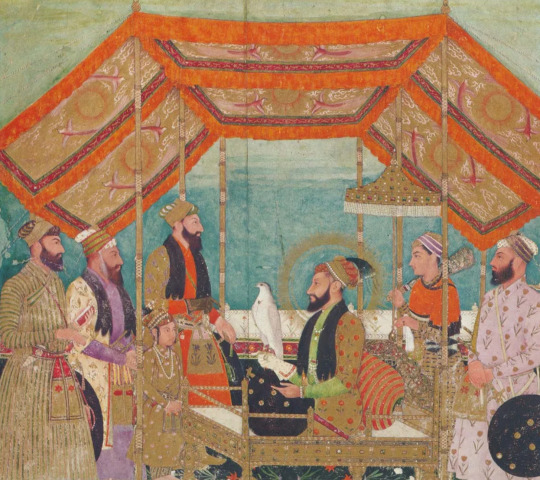
Aurangzeb sits on a golden throne while holding a hawk. Public domain via Wikimedia Commons
Avery, the man who put the world’s economy on a knife-edge by plundering the flagship of Aurangzeb of India, possibly the richest person in the world, drew deeply on a pipe filled with Virginia’s finest tobacco. The gray smoke billowed into the charred rafters of the Wheel of Fortune inn and out the chimney stack to freedom. Avery was thinking about liberty, too. The hard knocks of family life as a child, and betrayal by the Royal Navy, had shattered any dreams Avery once cherished. These days, he was a cold-blooded hyper-realist.
Avery had just become the first pirate commander to chase down a Mughal emperor’s treasure ship. Overnight, he and his crew were millionaires, celebrities, notorious. The pirate would enjoy the moment before deciding his fate. There was much to be said for staying in the Americas—the laid-back lifestyle, the tropical mood, the sun on your back standing next to the tiller.
But he viewed the people as vermin. And the culture. What culture? Avery had rolled out his deadly plans with all the guile and strategic know-how that his navy training had taught him. His scheming wasn’t over yet. Ever since he’d stripped the stricken Gunsway off the coast of Surat, Avery had been thinking about payback: to the family of his old governor who cheated him out of his fortune, to his country for betraying his men in A Coruña, Spain, and pushing him to mutiny.
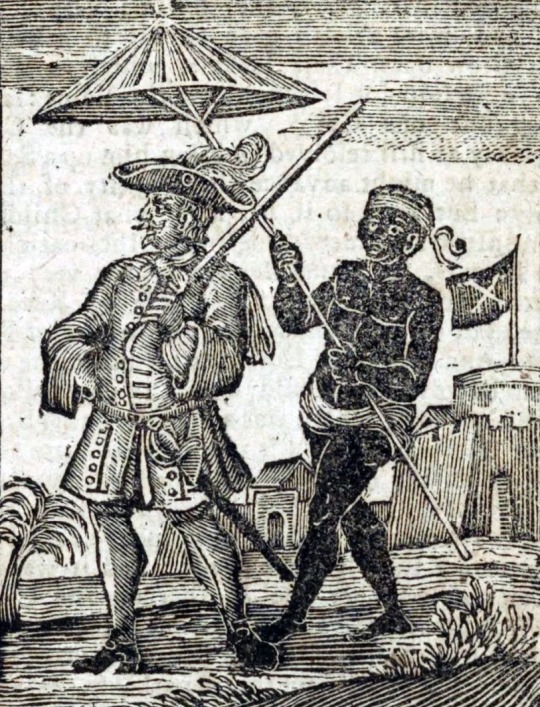
An 18th-century illustration of Henry Avery. Public domain via the Internet Archive
Avery wondered how much power a man with a fortune like his could buy. To him, power meant returning home to England, the land of his fathers, and Bideford in Devon, a town thick with bittersweet memories. Yet again, he would prove the world wrong.
The nectar of the pirate’s sweet tobacco was a welcome respite from the anarchy of New Providence. The town had no proper governing body and little order. Human waste and garbage choked the alleys. Outside the tavern window, Avery saw the bones of repairs, abandoned hulls and burned-out prizes littering the shores. The island’s wide, open beaches were perfect for careening hulls, beaching ships and listing them to one side to scrape off the foul barnacles and shipworms that infest the tropical Caribbean.
Avery sipped his glass of wine. His plan had gone just how he’d hoped. On paper, Nicholas Trott, governor of New Providence, was an upstanding pillar of the community. Avery knew better. He had gained intelligence about the top dog’s true nature.
Trott liked to frog-march around the harbor with his crisp leather ledger tucked under his arm, all-important. But make no bones about it: Avery knew that the governor was a snake in the grass without a shred of experience serving king and country. As Richard Coote, the powerful First Earl of Bellomont and the governor of Massachusetts Bay, warned London in 1699, Trott was “the greatest pirate-broker that ever was in America.”
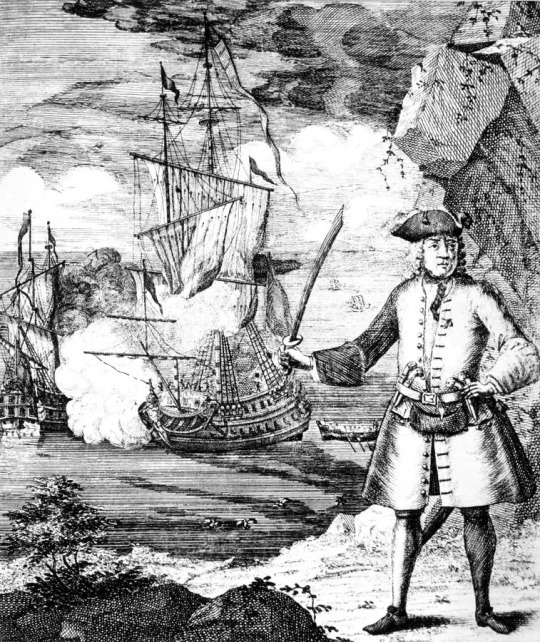
An 18th-century depiction of Avery, with the Fancy shown in the background. Public domain via Wikimedia Commons
The king of the pirates would play nice, try diplomacy. If that failed, he would have no qualms strangling Trott’s neck until his eyes popped out.
To Avery, dropping into Nassau and dealing with Trott held no big risk of being slung into a dungeon for piracy. Trott was no gamble. Here was a man who could be bought, greedy to top up his demeaning £30 annual salary. Money meant power. Power meant status. The question was: What was Trott’s price?
To be sure his reckoning was sound, that morning Avery had moored the Fancy off the island’s coast and sent three of his men to New Providence with a personal note for the governor. Avery, in the guise of Bridgeman, pretended his ship was a slaver bending the rules as so many did, trafficking enslaved Africans and elephant tusks without the seal of approval from the Royal African Company, which owned the British crown’s monopoly over the trade.
The Fancy’s tall tale claimed the crew needed permission to take on provisions before going straight. Avery sent a purse stuffed with pieces of eight to make sure the governor got the point. In return for the courtesy of letting him land, Trott could expect a tip of 20 silver pieces of eight and 2 pieces of gold from each crew member. Avery would pay double as captain.
Trott’s fawning reply played the innocent to perfection. With a nudge and a wink, he embraced Avery’s crew as “soldiers of fortune” who “had done no Christian nation any damage and were the king’s subjects.” Trott sent the trio back to the Fancy, weighed down with a cask of wine, a hogshead of beer and a cask of sugar, as well as permission for Avery to land at his leisure.
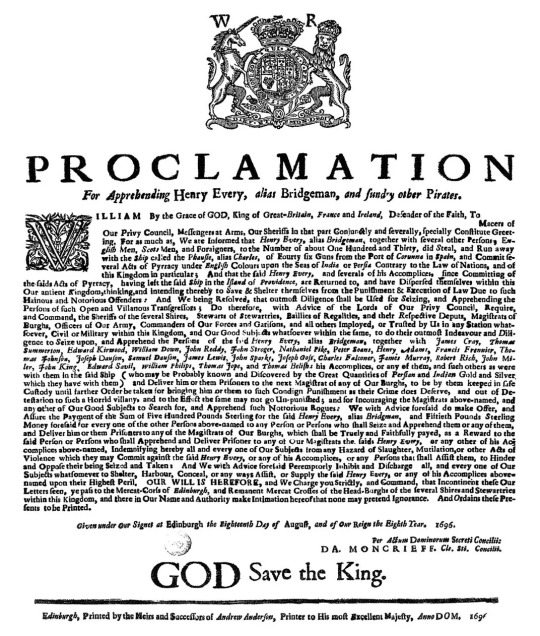
A proclamation for Avery's apprehension. Public domain via Wikimedia Commons
Avery knew full well that the clincher for Trott would be the offer of the added tip of the Fancy, with its 46 guns and 100 barrels of gunpowder. French forces had recently seized the island of Exuma, 140 miles away. Rumor had it they were heading for Nassau with three warships and 320 men. Fear filled the air. Nassau had no men-of-war ships, and Trott’s stone fort was still a building site. But with dozens of guns lining the shore, the French would think twice about raping and pillaging.
By the time Trott grounded the Fancy on Hog Island and started stripping its bones bare, he had raked in a small fortune. The strong man was rich and had hardly needed to lift a finger.
As the weeks unfolded, however, only one winner emerged. Avery’s crew scattered. The pirates were spotted openly walking the streets of Philadelphia, thick as thieves with judges and sheriffs, the Gunsway’s riches buying influence and power. Others preferred spending their loot in New York, Connecticut and New Jersey. A few of the crew stayed local. Two men settled in Bermuda. Some seven of Avery’s crew married in New Providence and bribed Trott to sign royal pardons. Most of the pirates went straight.
All the while, the rumor mill churned alarmingly. The wrecking ball of Avery’s recent past was catching up with him. East India Company agents were seeking the pirate king in Bombay and Calcutta. The Royal Navy was thinking about dispatching battleships to hunt for the Fancy in the waters between West Africa, Madagascar and Arabia. Bounty hunters crisscrossed the world from the Indian Ocean to the English Channel. Avery was the most wanted man in the world. The world’s first global manhunt was underway.
As the number of guns for hire searching for the pirate grew, proclamations for his apprehension flew from port to port. The legend of Avery the pirate king echoed through the world’s taverns, smoky coffee shops and fashionable ladies’ salons. Avery had shown the world how to unpick the richest treasure box on earth and revealed the wealth waiting to be stolen from heathens’ pockets.

A 19th-century illustration of Captain William Kidd. Public domain via Wikimedia Commons
Every pirate wanted to match Avery’s strike. The golden age of piracy had begun. Men of fortune flooded the Red Sea and the Indian Ocean. Captain William Kidd, the Scottish privateer sent on a mission in September 1696 to hunt down and destroy pirates, instead joined the free-for-all by seizing the Quedagh Merchant. Four years later, Kidd ended up dangling from the end of a rope at London’s Execution Dock.
Avery, for his part, wanted to keep his precious head on his neck. So far, his plan had worked like a dream. Trott was eating out of the palm of his hand. Avery was now the strongest man in Nassau.
The burning question in need of an urgent resolution was how to slip through the closing net. Should the pirate king hide out in the Caribbean or head to England for payback? Should he live a life of luxury in the West Indies or risk it all and be damned for retribution on far more dangerous British soil?
Within a few months of his arrival in the Bahamas, Avery was back on the waves. He was seen landing in Ireland in June 1696. That November, five of his crew members were hanged in England. But Avery himself escaped punishment. Some said the pirate king went to ground in London or Scotland, others that he died penniless and was buried in an unmarked grave in Devon. Or was he sipping fine French wine in the hills above Marseille?
Most ballads and books were convinced that Avery vanished in Madagascar, home to a supposed utopian pirate colony called Libertatia. But one fact was certain: When the Lords Justices of England offered the “assurance of our most gracious pardon” to all pirates in December 1698, only Kidd and Avery were excluded by name. The pirate king was still wanted, dead or alive.
#Smithsonian Mag#History#Notorious Pirate King#Mughal Treasure | Ship 🚢#Henry Avery#Bahamas 🇧🇸#Sean Kingsley | Rex Cowan
0 notes
Text
The Fate of Henry Every revealed?
Fascinating if true, though I'm still skeptical that it is, partly because of the use of the more famous name "Avery" rather than the likely more authentic "Every".
And also, frankly, because it just seems too amazing to be true. But honestly, that's true of a lot of pirate history, even stuff verified from official historical records.
If this is true, then it solves one of the great pirate mysteries, on par with someone finding Captain Kidd's rumoured buried Treasure, or documentary proof of Ann Bonny and Mary Read's relationship status.
0 notes
Text
So legendary pirate Henry Avery might have bought a royal pardon from William III after his disappearance and become a spy observing Catholics in Britain? Fascinating.
0 notes
Text
Quote of the day:
I'm a man of fortune, and I must seek my fortune - Captain Henry Avery
0 notes
Photo

"𝕴 𝖆𝖒 𝖆 𝖒𝖆𝖓 𝖔𝖋 𝖋𝖔𝖗𝖙𝖚𝖓𝖊 𝖆𝖓𝖉 𝕴 𝖒𝖚𝖘𝖙 𝖘𝖊𝖊𝖐 𝖒𝖞 𝖋𝖔𝖗𝖙𝖚𝖓𝖊"
-𝕳𝖊𝖓𝖗𝖞 𝕬𝖛𝖊𝖗𝖞, 𝟏𝟔𝟗𝟒
𝕾𝖎𝖈 - 𝕻𝖆𝖗𝖛𝖎𝖘 - 𝕸𝖆𝖌𝖓𝖆
𓂀 𝕌𝕟𝕔𝕙𝕒𝕣𝕥𝕖𝕕 𝟜: 𝔸 𝕋𝕙𝕚𝕖𝕗'𝕤 𝔼𝕟𝕕 𓂀
#uncharted#a thief’s end#nathan drake#henry avery#sic parvis manga#conclusion#uncharted 4#playstation#playstation 4#trasure hunter#legacy#digital 2d#naughty dog#sic parvis magna#sony entertainment#sony playstation
0 notes
Text

















Jensen Ackles as Beau Arlen in Big Sky S3 Episode 11 - Super Foxes
#jensen ackles#beau arlen#big sky#big sky 3x11#super foxes#big sky s3#big sky season 3#jensenacklesedit#beauarlenedit#bigskyedit#jenny hoyt#katheryn winnick#avery mccallister#henry ian cusick#my gifs
291 notes
·
View notes
Text





Beau Arlen & Jenny Hoyt (with Avery McCallister) in Big Sky [291/∞]
#bigskyedit#beauarlenedit#jennyhoytedit#harlenedit#beau x jenny#Beau Arlen#Jenny Hoyt#Avery McCallister#Big Sky#3x08#Jensen Ackles#Katheryn Winnick#Henry Ian Cusick#harlen#justa's edit#harlen in big sky
24 notes
·
View notes
Photo




Protective Dad | Beau Arlen - Big Sky 3.08
#beau arlen#big sky#jensen ackles#My Gifs#beau arlen edit#beau arlen gifs#jensen ackles edit#jensen ackles gifs#big sky 3x8#big sky 3.08#big sky s3e8#big sky season 3 episode 8#big sky edit#big sky gifs#duck hunting#jensen ackles as beau arlen#henry ian cusick#avery
246 notes
·
View notes
Text
Halloween comic yippee









Get [spoilers]ed on Halloween!!! [[[[[:<
#ghost#ghost and pals#communications by ghost#communications#communications case 3#spoilers#bri rodez#ghostandpals#communications case 2#communications case 1#frances elsner#henry elsner#nancy elsner#kennith simmons#kennith#avery martin#it took me too long wah..#anyways happy halloween!! or [spoilers] day!!#[spoilers]
35 notes
·
View notes
Text
!!!NEW REVIEW!!!


one of the biggest criticisms of the short being that the drawings are too good is a testament to Tex Avery’s skill as a director. Porky’s Preview may not seem like it, but, as of it’s release in April 1941, it was easily one of the most anarchic cartoons of its time. here, the entire short is a self parody about the medium of animation—Porky, once again (and for the final time) cast as a child proudly displays his own homemade cartoon, that is exactly what one would expect when a 7 year old says they made a cartoon. the short is easily one of Avery’s most subversive and, with a few exceptions, holds up extraordinarily well 82 years later.

#cameo appearance by Henry Binder#‘exceptions’ being that there is an unfortunate Al Jolson bit at the end and of course Jolson = blackface so i would heed with caution#lt#porky's preview#looney tunes#reviews#avery
52 notes
·
View notes
Text
Nassau: Overview
Nassau was originally a small port town, in 1706 the pirvateer Henry Avery bribed Nassau's Govenor (Nicholas Trott) to allow him to stay. This made Nassau known as a place pirates could operate safely.
When Benjamin Hornigold started piracy in 1713, he was quick to declare Nassau as a Pirate Republic due to the islands population of roughly 1,000 pirates compared to only about 100 locals as well as the ports reputation.
From here many pirates gravitated to Nassau, eventually leading to the Flying Gang being created from the most notorious pirates based around Nassau. Like the individual crews, Nassau ran democratically with officials and even allegedly elected Edward Teach (Thatch) otherwise known as Blackbeard as Magistrate.
The republic lasted just over 11 years, from 1706 to 1718, when the British took over the island and offered the pirates situated there a choice between a full pardon and employment under the British Navy or a death sentence by hanging.
Sources and Secondary Reading:
Woodard, Colin (2008-05-12). The Republic of Pirates: Being the True and Surprising Story of the Caribbean Pirates and the Man Who Brought Them Down. Houghton Mifflin Harcourt.
Kazerooni, Bijan (26 April 2018). ""All this Shim-Sham Story of Pyrates is an Impudent Libel upon Great Men": The Suppression of Pirates and the Suppression of Dissent in Walpolean Britain". Voces Novae. 8 (1).
#Pirates#Nassau#Benjamin Hornigold#Henry Avery#Blackbeard#Edward Teach#Edward Thatch#Historical#Educational#Student project#Nassau Pirate Republic
1 note
·
View note
Text
Tell me your Henry Cavill Crack Role!
This is a safe space! I don't care how out there it is!
I want him to play Conan from Conan Exiles, the game.
I want to see him play Avery from the first book of Mountainville, Victoria's Ranger. (it's a huge series of books on DDLG, Woot Daddy!Henry)
I need to see him play Thors from Vinland Saga!!
#henrycavill#henry cavill#Crack Role#Must See Role#Conan#Conan Exiles#Avery Walker#MountainVille#Daddy!Henry#Thors#Vinland Saga#Safe Space
38 notes
·
View notes